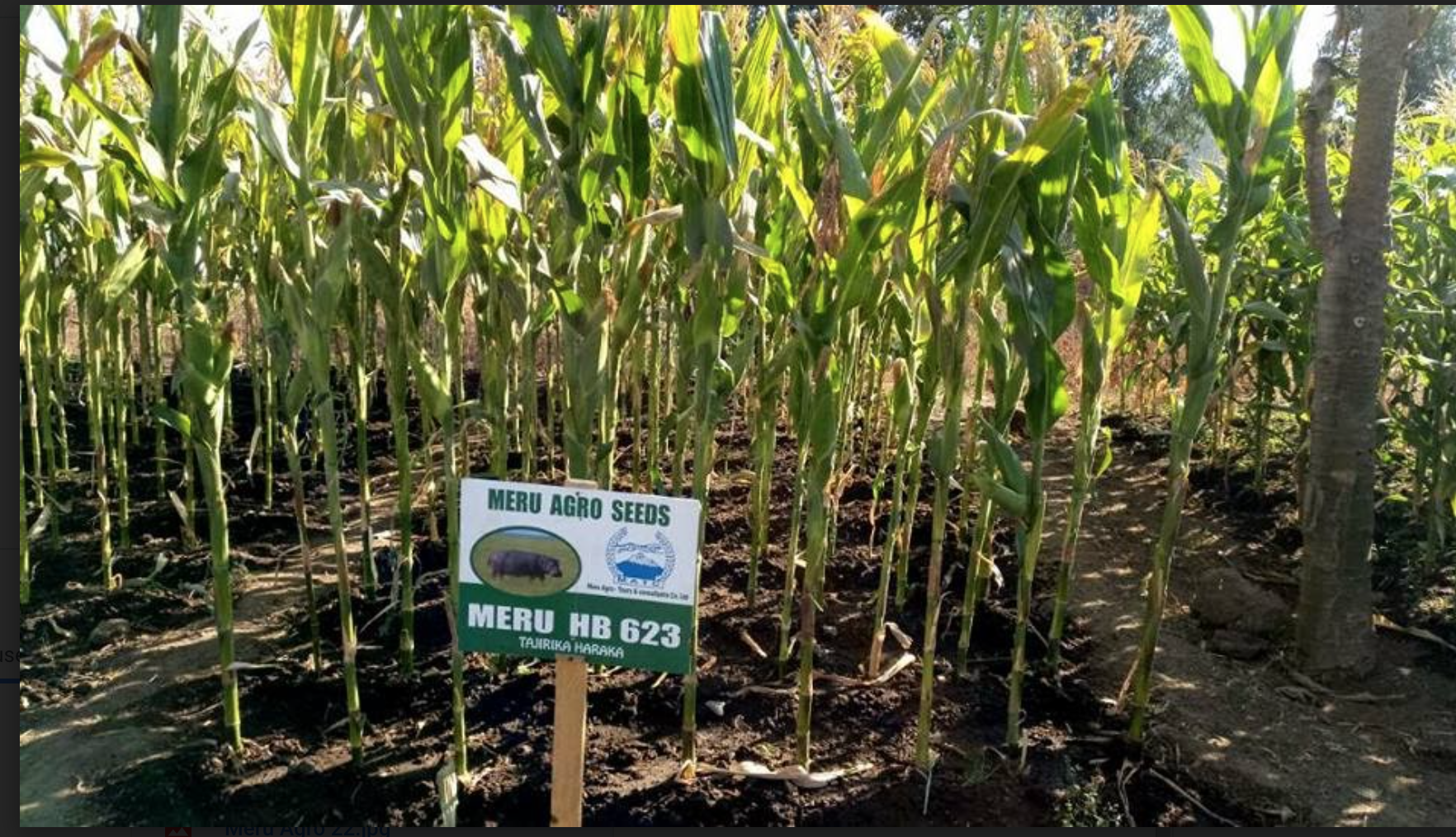By Anthony Muchoki
Meru Agro-Tours & Consultants Co. Ltd (MATC) or simply Meru Agro has become a household name in all breadbaskets of Tanzania in the last 5 year or so.
From a one man show business based in Arusha, to a nationwide presence, it has been no mean feat, for the firm’s founding director, Mr Chacha Wetanga.
He registered the firm in 2005 and commenced business the following year as a small Agrodealer. He employed a single person in 2006 to run it. In 2009, he quit, a prestigious, well paying job to venture into the small firm full time.
“Leaving a company house, car, salary and all those comfort to start from scratch, my parents were not happy, my friends were shocked, and my wife was like, I support you, but, will it work?”
A holder of B.SC and M.BA, his friends tried to convince him how his management, marketing and financial expertise was highly needed by many multinational companies across Tanzania.
Initially, the company had planned to focus on 3 areas- agriculture, tourism and consultancy, but took off with the first, and stayed focused up to now.
He says, he had one conviction- “Small scale farmers across Tanzania were suffering lot, and I had some answers to some of the problems, especially in provision of agricultural inputs ” he says.
I knew that availability of seeds during planting seasons for smallholder farming communities was the way food sovereignty.
“Whether we like it or not the availability or unavailability of improved seeds varieties (and other inputs) makes farmers to remain poor or improve their lives,” he notes.
With that in mind, he was convinced he would play a role in uplifting the livelihood of smallholder farmers, by providing to them inputs at the most affordable prices. His passion was to sell, quality at less price but reach more farmers.
His big break come in 2008/9 season when commenced seed production. The year 2010 was another turning point for the company. “We won a USD 223,900 grant from Alliance for Green Revolution in Africa (AGRA)’ Program for Africa’s Seed Systems. This was for production, promotion and distribution of selected improved seed varieties at affordable price to small-scale farmers in Northern Tanzania,” he notes.
The project was successfully implemented between 1 February 2010-31 December 2012, and its impact has been huge continuing to date, he asserts.
By the end of the grant period, MATC had increased seed production by over a 100 per cent. Apart from finance, high ranking consultants working with AGRA helped the company to lay a solid footing in the seeds market.
The project played a key role in enhancing household food supply and incomes of smallholder farmers of the northern region of Tanzania by producing and disseminating improved seed of maize, sorghum and beans.
“At the end of the day, the support from AGRA enabled us to increase production capacity and develop institutional network,” he notes.
Mr Watanga definitely knows Tanzania’s seed subsector well. He says the potential seed demand for maize alone is 160,000 MT and supply is about just above 30,000MT.
“We have the problem of locally produced improved variety adoption rates being very low at approximately 18-20%. Once we overcome this, eventually there will be reduction of imports and then we can go places…. The future is bright,” he articulates.
He acknowledges that seed production business is risky as it faces numerous other challenges like droughts, low productivity of contract farmers and fake seeds.
He notes that investing in production, promotion, processing machineries, processing inputs and labor is capital intensive. “In our business we operating in a delicate 100 per cent risk situation but it is all worthwhile- it pays, that is my message to the young generation.”
His company, strategically headquartered in Arusha fondly referred as Geneva of Africa, is currently more involved agricultural inputs businesses ranging from multiplication, distribution and retailing of agro seeds; importation, distribution and retailing of agrochemicals, fertilizers and agricultural equipments.
One of the most successful seed it has been multiplying is HB513 a drought-tolerant hybrid. The company has produced over 3,200 metric tons of HB513 seed, with a reach of over 150,000 smallholder farmers.
Meru Agro is a multiplies seeds from national agriculture institutes, which some of them are beneficiaries of AGRA support.
The company has a nationwide customer base served by a network of agents and stockiest across the country.
“Our mission is to provide comprehensive agricultural input package for farmers through intensive supply of improved seeds, agrochemicals, fertilizers and oversee application of recommended agronomic practices,”
Mr Watanga firmly, believes that improved agriculture can lift up small farmers from the mire of poverty in Tanzania, and he has seen it work and what now needs to be done is replication of success stories throughout the country. “This way Tanzania will no longer be a poor country,” he says.
“At MATC we carefully select our agro-dealers, training them and make them a part of our success. We make sure we always reinvest back our profits back in the business. At the same time we work in collaboration with research institutions, technology brokers and development partners. We have not reached where we want, but we are on the way there,” he concludes.
Grant
2009/2010
Meru Agro-Tours and Consultants Co. Ltd.
Grant: $223,900
Production, promotion and distribution of selected improved seed varieties at affordable price to small-scale farmers in Northern Tanzania
PASS
Seed Production for Africa
Northern Tanzania (Kilimanjaro, Arusha, Manyara)
Hai, Arumeru, Arusha, Monduli, Babati and Hanang districts
smallholder farmers and agrodealers in the region
